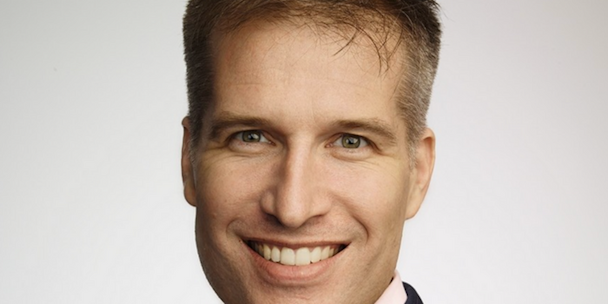Brian O’Kelley: ‘I think Google just did the ID consortium a huge favor’
The Drum caught up with AppNexus chief executive Brian O’Kelley ahead of his IAB Engage keynote due later today (7 June) where he shared his thoughts on the state of adtech post-GDPR, including the potential opportunity for a more diversified marketplace.

AppNexus CEO Brian O'Kelley believes the industry will seek a new industry standard user-ID system now that GDPR has arrived / AppNexus
The European Union’s General Data Protection Regulations (GDPR) took effect on 25 May sending the adtech ecosystem into a major state of flux as media buyers, platform providers and publishers implemented their differing interpretations of what is GDPR compliance.
As the dominant ad server, demand-side platform (DSP) and ad exchange provider in the market, Google’s conservative interpretation of GDPR compliance, and how consent signals can legitimately passed through the supply chain has understandably had a major impact.
Google’s user ID encryption – a policy it implemented as part of its GDPR compliance strategy – limits advertisers’ ability to measure the reach of their Google ad campaigns against those performed on other platforms.
In addition, Google has also implemented a GDPR-compliance policy affecting online publishers using its DoubleClick suite of monetization tools whereby it will limit the amount of third-party adtech providers they can work with.
Many have forecast that such measures have been adopted to further propagate Google’s dominance of the market, noting how numerous independent adtech players have seen a significant downturn in spend since 25 May.
However, speaking with The Drum, Brian O’Kelley, chief executive of AppNexus believes its policies may have unintentionally proved a boon for the (still nascent) independent adtech consortium established to construct an open identity solution that will be made available to participating members.
“I think Google just did the ID consortium a huge favor when they said they weren't going to share, user ID data out of DCM, so I think we may have seen the end of DCM as an industry standard ad server, that's kind of shocking and kind of great,” he says.
According to O’Kelley, some of the largest marketers in the world have approached consortium members – which consists of 15 independent adtech companies – intimating that they “want to run their whole digital advertising business on the consortium shared ID”.
This has largely been a lesson taught by the extent of the limitations that have resulted from Google’s recent GDPR compliance, and now the industry is looking for a third way. “Marketers want to control their own data and to do that they do need some kind of ID standard,” says O’Kelley.
“So I think that's sort of where we are is realizing that the opportunity is bigger than we thought. It's not just a bunch of ad tech companies trying to figure things out. This is actually potentially a standard ID for the industry.”
Since being initially unveiled 12 months ago, developments with the industry consortium have been stalled as the sector sought to comply with GDPR, but now this work has been done, O’Kelley expects the consortium to become a priority as the industry seeks a new standard that isn’t controlled by the likes of Facebook or Google, he argues.
“So basically with DigiTrust being absorbed [effectively a rival to the industry consortium, which was later bought by the IAB] and then the rollout of GDPR – I think that's going to be like the next big industry conversation that's gonna start,” adds O’Kelley.
AppNexus chief executive Brian O’Kelley is due to speak later today at the IAB Engage conference, click here for more details about the day’s proceedings.

